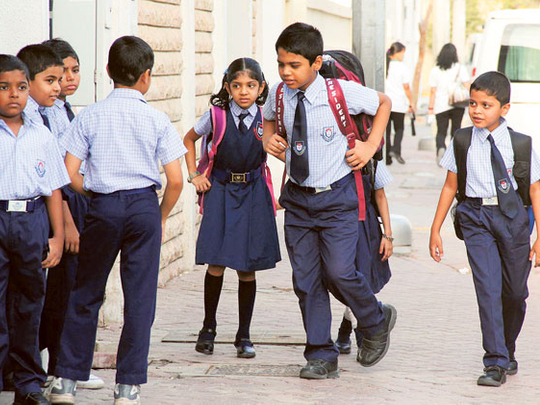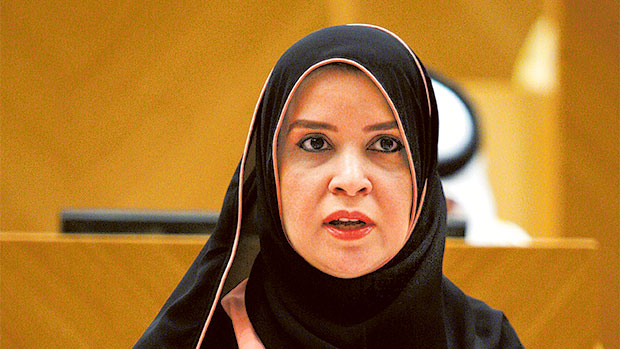
Abu Dhabi: Focus on education is one of the key areas of development for the UAE and, this year, the drive towards building a knowledge-based economy has seen a focus on quality education for all, along with concerted efforts to ensure schoolchildren’s safety.
The by now well established biennial school inspections have become a major incentive for schools to better their standards. Meanwhile, efforts by the emirate’s education sector regulator, the Abu Dhabi Education Council (Adec), have ensured that school premises remain safe, and that cultural values and extracurricular activities take equal importance during children’s developmental years.
According to official statistics revealed at the start of the 2014-2015 academic year in September, there are now 256 public schools in the emirate that boast 126,000 pupils among them. At the same time, 225,000 pupils are registered at 189 private schools, with this proportion growing by about seven per cent each year.
During the previous academic year, Dr Amal Al Qubaisi, a prominent member of the UAE Federal National Council, took over at the helm of the Adec following the decree of President His Highness Shaikh Khalifa Bin Zayed Al Nahyan. As an accomplished leader and the first female deputy speaker of the house, Dr Amal’s direction during the ongoing academic year has emphasised educational excellence and innovation.
Widespread improvements have been noted in a number of evaluation criteria, including teaching quality, leadership, and a range of extracurricular activities at schools.
At the same time, Arabic language teaching and learning remain a key challenge at most schools, and Adec officials have called upon school leaders to prioritise this aspect of education. Instruction in the Arabic language is an area of particular concern because about 24 per cent of pupils in private schools are Emirati, and this proportion is set to grow as the 28 per cent of Emirati pupils now enrolled in KG2 progress to higher grades.
School fees hike and the six criteria
School fee changes have also been further standardised this year under a new system introduced by the Adec. To apply for a fee increase, schools must meet one of six criteria, and must not have implemented a hike in the previous academic year.
What are the six criteria? Improvements in school rankings; recruitment of new teachers or salary increases and professional development for staff; investments in infrastructure and learning resources; focus on recruiting Emirati teachers and enrolling Emirati pupils; efforts to integrate pupils and teachers with special needs and an efficient system to handle and resolve parent complaints.
Quality control
Another key Adec initiative, the systematic closure of schools located in non-purpose-built premises or on land not allocated for educational purposes, has also seen much progress. These villa schools were found to be unsafe for children, and did not meet Adec’s quality and safety standards. Of the 72 villa schools at the start of the drive in 2009, only 18 are still operational, and they are expected to all shut down by the summer of 2015. Many of these institutions have also relocated to suitable premises granted to them by Adec.
Public schools and standardised uniforms
This year, public schools have also witnessed a number of key changes. One of the most noticeable is a standardised set of blue uniforms, emblazoned with the Adec logo, for all children. The first round of school inspections is also being conducted for public institutions, with the results expected to be released next year.
In the meantime, 300 new Emirati educators and 144 expatriate teachers have been recruited to teach at these schools.
Pupils’ overall development
It is not just curriculum development and standards that are at the forefront of education officials’ plans. In October, they also called upon organisations and individuals in the emirate to develop long-term public health and wellness strategies that can be implemented to promote better lifestyles among children (see box).
In addition, a slew of sporting activities were available for all children during the summer months. And in collaboration with the Abu Dhabi Technology Development Committee, the much-loved Abu Dhabi Science Festival also entertained and enlightened dozens of schoolchildren about the benefits of pursuing careers in scientific fields of study.









